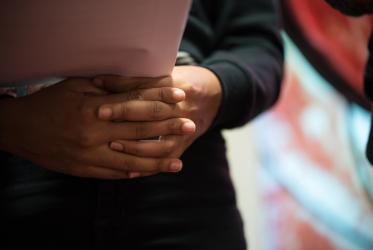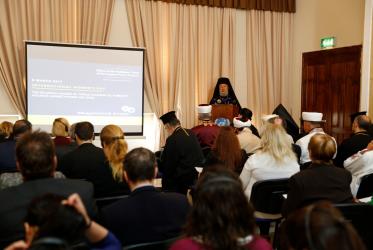Displaying 101 - 120 of 168
05 October 2018
Catholic official: we must walk and pray together with vulnerable people
19 September 2018
“What really matters is our shared humanity”
14 August 2018
#WCC70: A prayer about health and healing
20 July 2018
Pope Francis at the World Council of Churches
31 May 2018
When you have nothing, you give your heart
09 May 2018
At CSW62, “stories are the heartbeat”
21 March 2018
In Nigeria, WCC workshops focus on human rights
04 December 2017
Gender-based violence concerns ‘all of humanity’
11 July 2017
Women in development create space for hope in Egypt
15 June 2017
Church leaders unite their voices against modern slavery
09 February 2017









